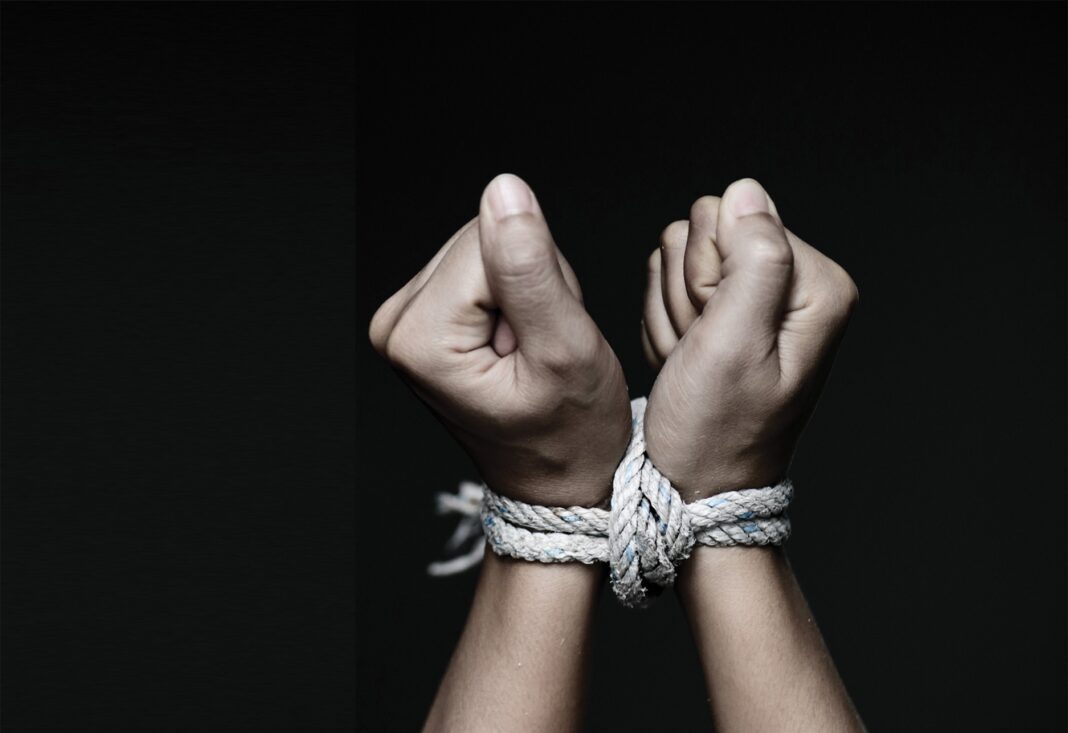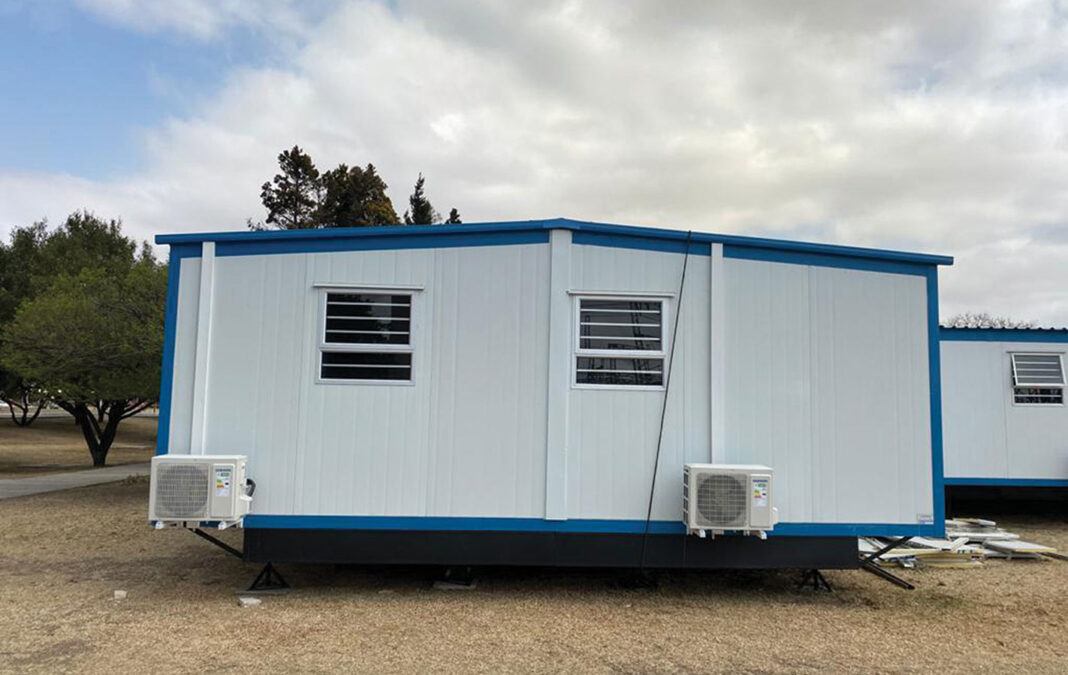By Majirata Latela
Following the submission of a human trafficking report to the United States earlier this year, Lesotho this week launched the National Strategic Framework to Combat Trafficking in Persons (NSFCTP) 2021-2026.
The strategic plan comes at a time when Lesotho is in the US tier 3, which means the government of Lesotho does not fully meet the minimum standards for the elimination of trafficking and is not making significant efforts to do so.
The document – which aims at supporting a more effective multi-sectoral response to trafficking in persons – says that Lesotho must strengthen regional and international cooperation through existing United Nations instruments and the Southern African Protocols on mutual legal assistance in criminal matters to safeguard effective investigation and prosecution.
Domestic implementation measures must be bolstered by concluding extradition treaties and repatriation agreements with other signatory countries, the document says.
It further shows that investigations when it comes to prosecutions of perpetrators of trafficking indicates that victims of human trafficking have the right to access legal assistance, but this is limited by what the victim can afford. There are no witness protection schemes for victims and often fear and financial reasons prevent them from providing evidence in court. Also witness protection during court hearings is only available in Maseru.
“It is imperative that legal assistance and witness protection be made possible of victims of trafficking and other witnesses to ensure their safety and an effective criminal justice process,
“Limited awareness of the different faces of Trafficking in persons increases the risk of vulnerable people falling into the hands of traffickers. In 2019 member of the multi-sectoral committee undertook trafficking in person’s public awareness activities in partnership with international organisation and local Non-Governmental Organisation.”
The national strategic plan sets out the long term planning for the prevention of and response of trafficking in persons.
“This multi-year strategy and action plan will be operationalized into annual work plans to support evidence based planning and monitoring and to allow for the re- prioritisation of activities on basis of results, lessons learned and available resources.
“These annual work plans will also facilitate quarterly and annual reporting at multi- sectoral committee level, and to parliament and other key stakeholders. The multi- sectoral committee monitors the process to some extent but more systematic monitoring and reporting is required for learning purposes. This will enhance planning, coordination and reporting at multi-sectoral committee level.”
It also reveals that a national data management system has been set up to monitor trafficking trends. Unfortunately data is inconsistently collected and entered by the different officials responsible for the system. The government continues to contribute to SADC’s regional data collection effort by uploading information on trafficking cases, including victims and trafficker profiles and by sharing information with countries in the region.
Furthermore, the framework is intended to data analysis and of trafficking patterns, and implementation of the NSFAP. The framework delineates the roles and responsibilities of members of the multi- sectoral committee with respect to the collection, entry, sharing and reporting of data including formats and intervals.
“Despite the lack of significant efforts, the government took some steps to address trafficking, including conducting awareness-raising activities in partnership with an international organization and an NGO, continuing to participate in a regional data collection tool, and training 27 diplomats on trafficking in persons.
“However, the government did not investigate or prosecute any potential trafficking cases for the second consecutive year and did not convict any traffickers for the fourth consecutive year. Despite serious concerns of official complicity in trafficking crimes, which appeared to restrict all law enforcement actions during the reporting period, the government did not report any investigations, prosecutions, or convictions of government officials for such acts.”
A United States 2020 Trafficking in Persons Report (Lesotho) illustrated the extent to which human trafficking in Lesotho is entrenched and institutionalized.
According to the report, the government of Lesotho does not fully meet the minimum standards for the elimination of trafficking and is not making significant efforts to do so.
“Despite the lack of significant efforts, the government took some steps to address trafficking, including conducting awareness-raising activities in partnership with an international organization and an NGO, continuing to participate in a regional data collection tool, and training 27 diplomats on trafficking in persons. However, the government did not investigate or prosecute any potential trafficking cases for the second consecutive year and did not convict any traffickers for the fourth consecutive year. Despite serious concerns of official complicity in trafficking crimes, which appeared to restrict all law enforcement actions during the reporting period, the government did not report any investigations, prosecutions, or convictions of government officials for such acts.
“The government identified fewer victims and did not provide protective services to victims or financial support to an NGO that did. For the fourth consecutive year, it did not finalize standard operating procedures on victim identification or the national referral mechanism. The government did not allocate funding for the Victims of Trafficking Trust Fund for the ninth consecutive year or fund the Child and Gender Protection Unit (CGPU), responsible for handling trafficking cases within Lesotho law enforcement. The government did not adequately train front-line responders, which often resulted in law enforcement re-traumatizing potential victims.
“The government did not address issues in its legal framework for human trafficking, which did not criminalize all forms of sex trafficking and included penalties that were not sufficiently stringent to deter the crime. The anti-trafficking coordination body did not meet regularly and lacked formal processes to track progress against national anti-trafficking goals. Senior government officials did not support and continued to impede efforts made by the coordination body. The government did not finalize an updated national action plan to combat trafficking–stalled for the second year. In order to avoid prosecuting a trafficker, the government actively blocked the re-entry into Lesotho of a foreign national trafficking victim who left the country to obtain a new passport,” the report states.
The US Report went on to recommend Lesotho to increase efforts to investigate, prosecute, and convict traffickers through independent and fair trials, including officials complicit in trafficking crimes; finalize and implement guidelines for proactive victim identification and standard operating procedures for referring identified victims to care, in line with the anti-trafficking act regulations; adequately fund the CGPU and establish a CGPU focal point in all 10 districts of Lesotho to ensure effective responsiveness to all potential trafficking cases; and adequately fund shelter and protective services for victims.
It further recommended the government to provide trafficking-specific training to police investigators, prosecutors, judges, and social service personnel and amend the anti-trafficking law to remove sentencing provisions that allow fines in lieu of imprisonment and remove the requirement of force, fraud, or coercion to constitute a child sex trafficking offense; allocate funds for the Victims of Trafficking Trust Fund and implement procedures for administering the funds; allocate funding to support operation of the multi-agency anti-trafficking task force; amend the anti-trafficking and child welfare laws so that force, fraud, or coercion are not required for cases involving children younger than age of 18 to be considered trafficking crimes; as well as fix jurisdictional issues that prevent magistrate courts from issuing the maximum penalty for trafficking crimes, increase efforts to systematically collect and analyse anti-trafficking law enforcement and victim protection data, and increase oversight of labour recruitment agencies licensed in Lesotho to mitigate fraudulent recruitment for mining work in South Africa.
Lesotho’s commitment to combatting human trafficking previously came under the spotlight when most countries attending the Human Rights Council’s Universal Periodic Review (UPR) Working Group’s 35th session in Geneva, Switzerland in January last year called on the country to work hard to eliminate human trafficking – a challenge that impinges on human rights.
Countries such as France, Germany and Island recommended that Lesotho ensures that perpetrators of human trafficking are put to justice after the country tabled its report, that shows it to be experiencing a high rate of human trafficking of women and children.
Women and children experience gender based violence and human trafficking despite measures taken by the government to eliminate gender-based violence. Frequent transfers of trained CGPU officers compromise efforts by the government, UN agencies and development partners to strengthen the capacity of the Unit in prevention of and response to gender-based violence and other offences.









